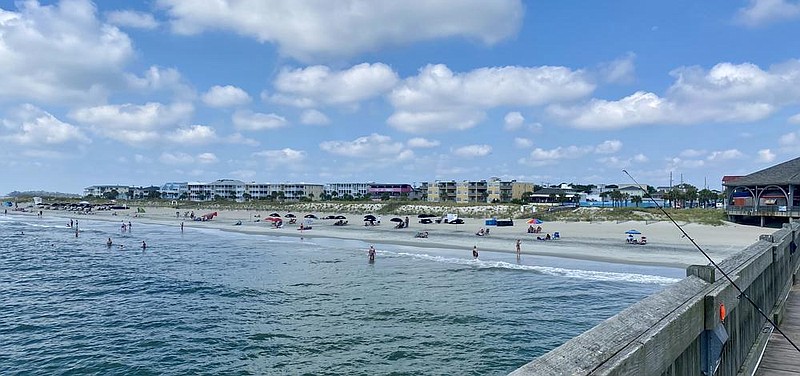As sea levels rise across coastal Georgia, property tax bases will begin to fall -- and as a result, essential municipal services will suffer.
That's the not-so-distant future foreseen by the scientific nonprofit Climate Central, which on Thursday released "Sinking Tax Base," an analysis of how much of the nation's taxable land lies vulnerable to rising waters.
Their answer? About 6,800 square miles in the U.S. -- an area roughly 50 times the size of the city of Atlanta -- may shift at least partially beneath tidal boundary levels by 2050.
In Georgia, that figure stands at about 100 square miles -- roughly the size of Savannah.
(READ MORE: Pilot program seeks to ease climate change in Chattanooga-area communities)
"The issue of private land jeopardized by sea-level rise -- and particularly the consequences for municipal tax revenues, spending on schools, roads -- is ... not something that's been well researched and well reported," said John Upton, who leads media outreach for Climate Central.
To be clear, the group's analysis does not put a dollar amount on property tax revenue likely to be lost; rather, it calculates the current assessed value of property that is likely to be affected by sea-level rise by mid-century.
In Coastal Georgia's most populated county of Chatham, that comes out to about $2 billion: $800 million in land value (7.5% of the overall land tax base) and $1.2 billion in building value (4.7% of the overall building tax base).
(READ MORE: Climate change to make droughts longer, more common, says UN)
"What's going to happen to the tax base for a lot of [coastal] communities -- and clearly what the data suggests -- is that it's being washed away," said Mark Rupp, who directs Georgetown University's climate change adaptation program.
But this doesn't mean that coastal communities are helpless in the face of sea-level rise, Rupp said.
"There are different policy mechanisms that are coming to light," he said. "You can actually plan to move people; there are resources to do so. Find other economies that you might invest in that aren't necessarily in the risk zones. That's all important for local governments to be planning."
But many local governments are "not even willing to have that conversation because the assumption is still that property taxes and property values will rise perpetually," said A.R. Siders, a professor at the University of Delaware's Disaster Research Center.
"And so I think, first, we sort of need to break that denial -- break that idea that -- this isn't a perpetual growth model," she said. "And then if we can break that, we can ask different questions. So, instead of saying, 'How do we maintain our property tax revenue?' the question can become, 'What other sources of revenue should we have?'"
Climate Central agrees with Rupp's and Siders' recommendations to diversify local economies in order to reduce reliance on property tax revenue. Similarly, the group also calls on communities to steer future development away from the coasts and toward inland areas.
(READ MORE: As cost of climate change rises, UN urges compensation)
However, inland development is not without its own challenges and unintended consequences, according to Siders, who pointed to Miami as a prime example.
"They're seeing densification away from some of these coastal areas, but that's also contributing to gentrification and to displacing communities," Siders said. "And so there's also a challenge there in terms of thinking about equity. Just because people are moving away from the coast doesn't mean they're doing it in a sort of socially desirable way."
Rupp echoed this concern.
"If we're to look at where a lot of the specific challenges of sea-level rise are impacting folks, it's low-income communities and communities of color," he said. "And so involving the community in any of these conversations is absolutely critical."
In its report, Climate Central recommends that communities also make smart investments in infrastructure, such as improvements to stormwater systems and coastal wetlands.
While such moves "will, at least for a time, help protect the tax base," the group stresses that these investments are merely coping mechanisms for climate change. Above all else, Climate Central urges communities to tackle the root cause.
"Ultimately, reducing and eventually eliminating carbon pollution will prevent the problems identified in this report from getting much worse," the report says.
